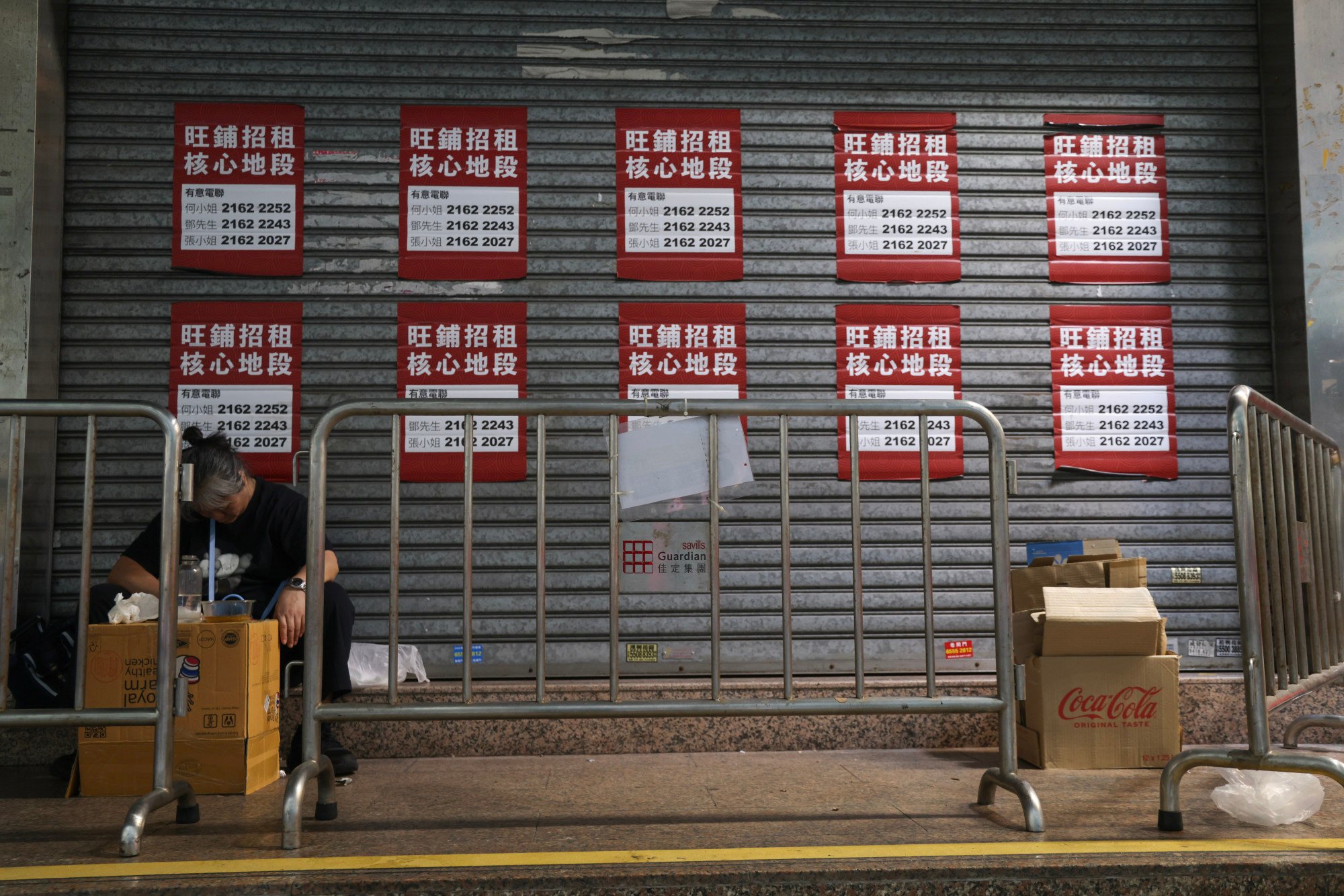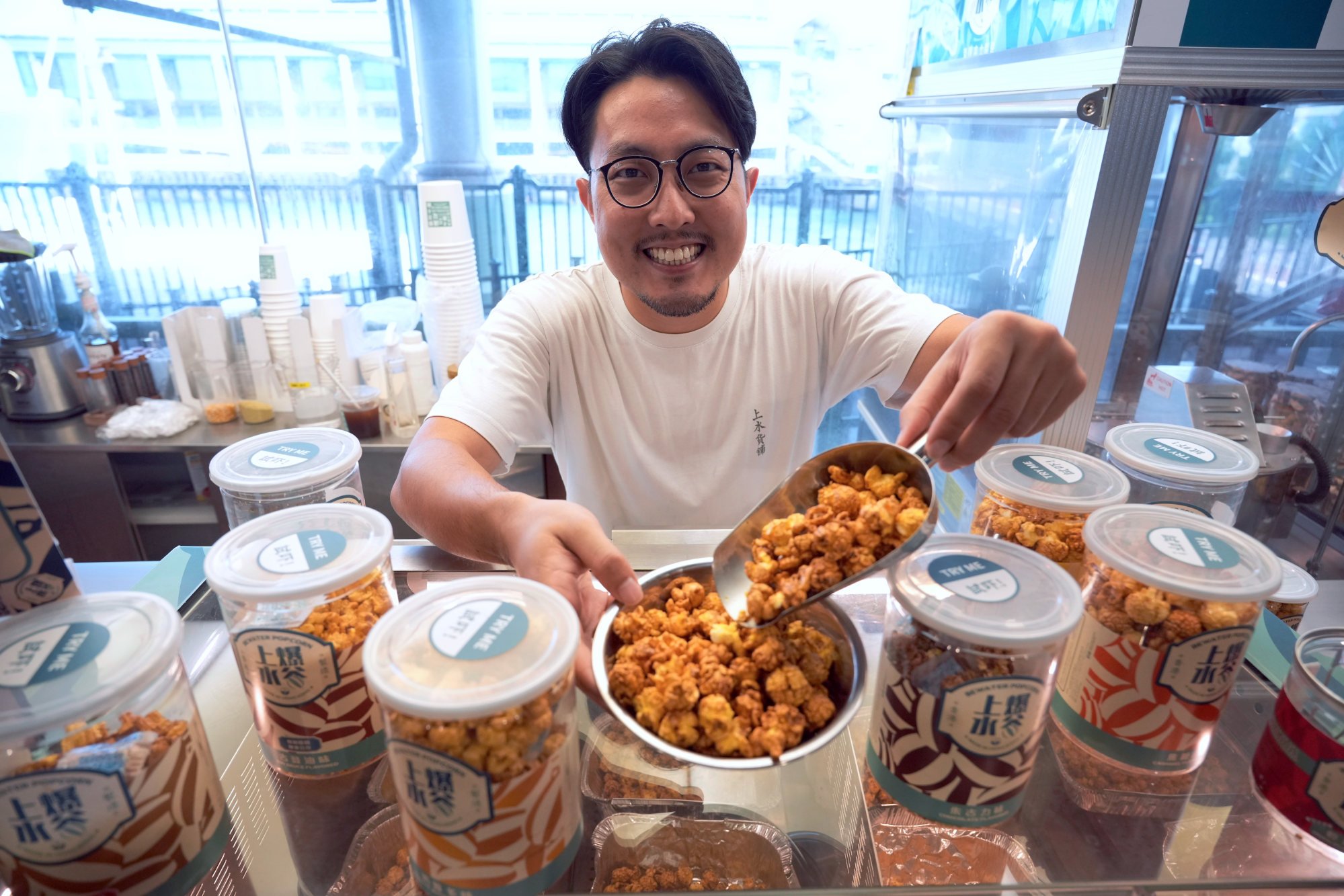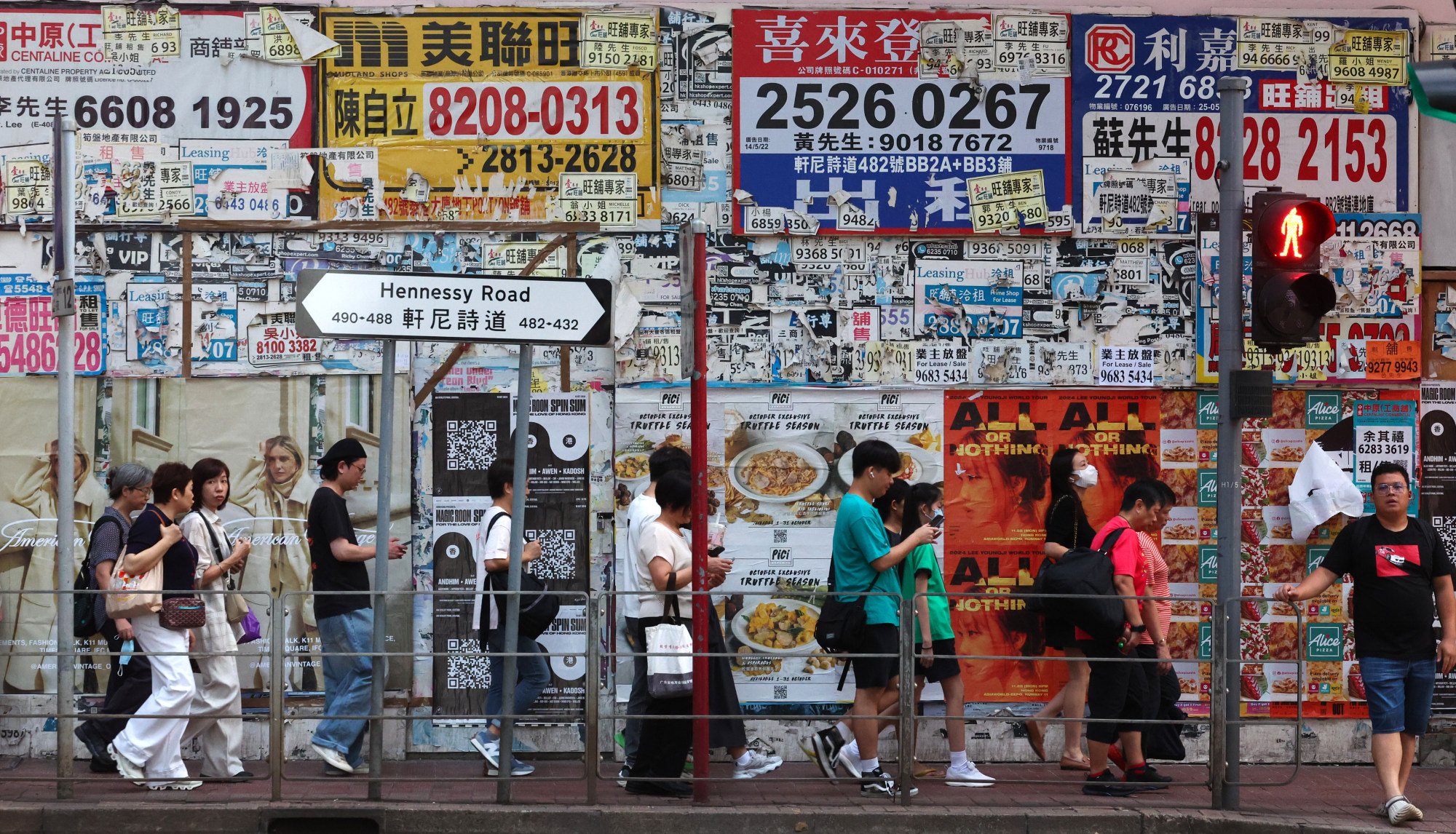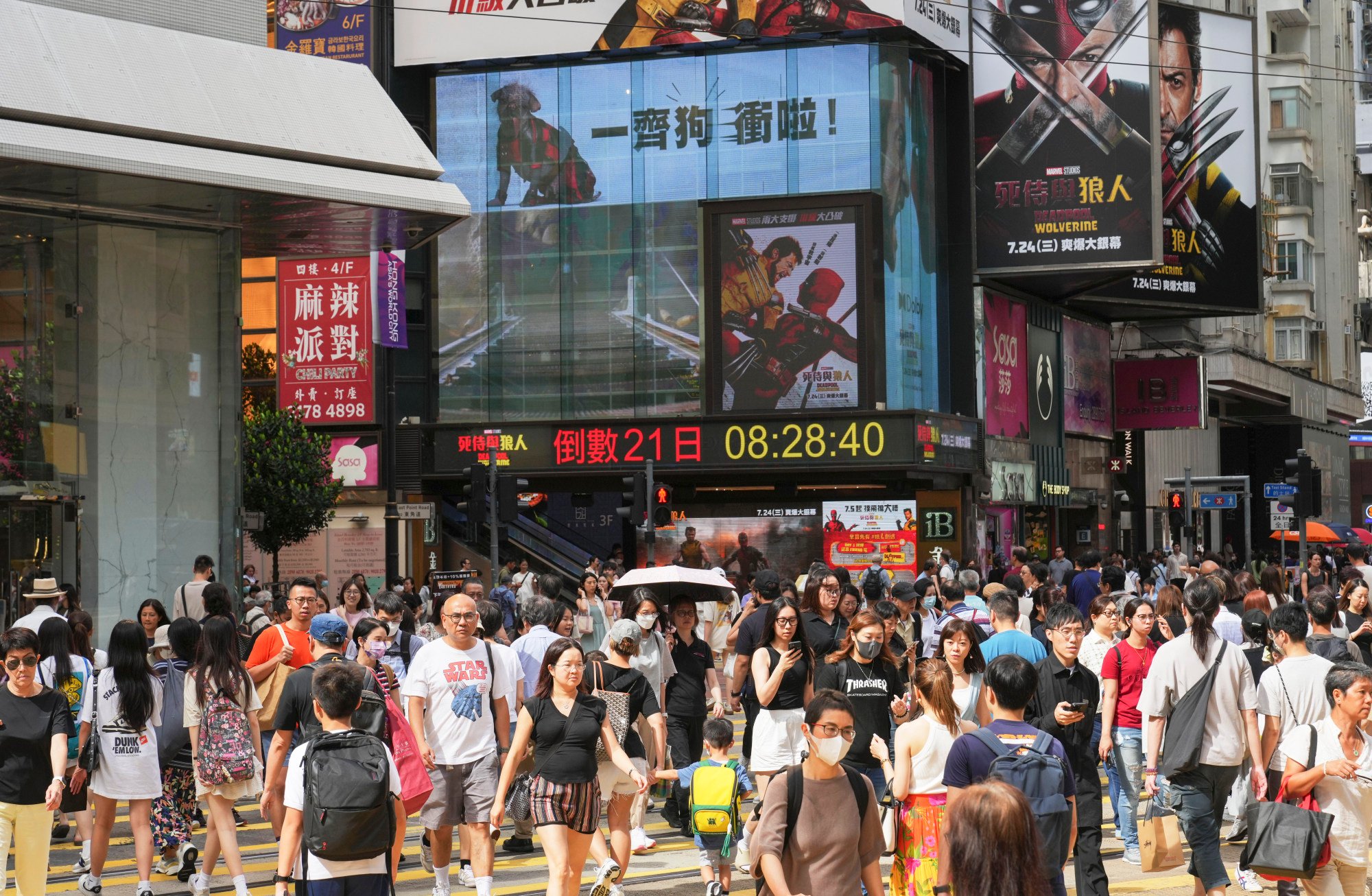Hong Kong homemaker and part-time teacher Tam Mei-ling is on a personal mission to preserve her city’s cultural landscape and identity.
The 48-year-old mother of two does that by supporting local businesses and refraining from joining the crowd of Hongkongers heading across the border to shop and eat in mainland China.
She told the Post that this was important, especially for people such as her, who had chosen to remain amid the wave of emigration following the social unrest of 2019, Beijing’s imposition of the national security law and the Covid-19 pandemic.
Do you have questions about the biggest topics and trends from around the world? Get the answers with SCMP Knowledge, our new platform of curated content with explainers, FAQs, analyses and infographics brought to you by our award-winning team.
Saddened to see Hong Kong shops, restaurants and other businesses closing, she said: “It’s heartbreaking to see how much things have gone downhill.”
As for those who prefer to stretch their dollar on the mainland, she said: “I don’t want to use the word ‘abandon’, but it does feel that way ... they have abandoned the city they are still living in, and I find it hard to understand.”
Tam is one of a small group of Hongkongers adamant in their support of local businesses, with some even rejecting the idea of going to the mainland at all, despite the higher prices in the city.
Some have taken to social media to talk about their choice and complain about being criticised by family and friends for bucking the trend.
“Is it pointless and idiotic of me to insist on spending locally, instead of heading up north?” asked one social media user. “I feel like nobody else in my life supports me.”
That post in July attracted around 4,300 likes and more than 700 comments, with many agreeing and expressing support, or lamenting that they were part of a shrinking minority.
Ever since the borders reopened in February 2023, after three years of strict anti-pandemic restrictions, Hong Kong businesses have been struggling, with ongoing store closures even hitting established retail chains and restaurants.
One reason is that high-spending mainland visitors have not returned in as large numbers as before the pandemic, not least because of the unsteady economy across the border and Hong Kong’s relatively strong dollar.

Also, in a turnaround from a decade ago, Hongkongers have begun flocking to places such as Shenzhen for dining, entertainment and even shopping for their daily necessities and groceries.
Hongkongers who stayed home to support local businesses told the Post they did so for the assurance of quality, personal political values, established human connections, or sheer “stubbornness”.
Homemaker Tam, for one, said she preferred local products not only for their quality, but also their “Hong Kong characteristics” and a sense of familiarity that only Hongkongers would understand.
At a time when about 500,000 residents have emigrated, she felt it was important to teach her children, aged nine and 11, about having a sense of belonging and identity.
“Those who have the means have left, and their reasons for doing so are valid,” she said. “For those of us who have chosen to stay, we try to persist and hold on.”
Tam said people had asked why she did not take her children to visit the mainland.
Her reply: “There are a lot of great places for children in Hong Kong that they haven’t visited either, so why not take time to learn about their home city?”
Tam said she was loyal in patronising some shops, even those that were a distance from her home in Sai Kung, and did not mind travelling 20 minutes by public transport to an organic goods shop in Hang Hau, for example.
“It started when my daughter was younger and developed a health condition. She needed to drink a certain type of formula, and this was one of the few shops that carried it,” she said. “Now I continue to buy all my shampoos and soaps there as well.”
Careful about food products
Kelvin Chan, 42, who works in the manufacturing sector, has not been to the mainland for many years.
His Mainland Travel Permit for Hong Kong and Macau Residents, commonly known as the “home return permit”, expired about a decade ago and he said he had no plans to renew it.
While acknowledging the “great advancements” on the mainland over the years, he could not shake off his doubts about quality.
The father of a six-year-old son, he had previously worked closely with mainland suppliers and found the quality of products to be uneven, unreliable or subject to less stringent standards.
“Of course, sometimes you spend money on something and the worst that can happen is it breaks or stops working, and you just buy it again from somewhere else,” he said.
“But when it comes to food or other items that enter the body, I think that can be risky.”
Despite his support for local businesses, however, he could not help feeling uncertain for their future.
“Sometimes, I feel it’s a kind of blind, pure stubbornness to persist,” he said. “I know the HK$500 [US$64] I occasionally spend at a shop isn’t going to do much in the grand scheme of things,” he said.

‘Pandemic ended, but rents shot up’
The latest official data showed the value of total retail sales in September dropped by 6.9 per cent to HK$29.6 billion compared with the same month in 2023. It was the seventh consecutive month of decline.
Annie Tse Yau On-yee, chairwoman of the Hong Kong Retail Management Association, had earlier said the city should expect an overall percentage decline in the low double digits for the entire year.
She said the retail sector had hit “rock bottom”, but was hopeful for growth in 2025.
One local business hit by post-pandemic woes was Be Water Mart, which opened in 2020 and at its peak had four outlets selling made-in-Hong Kong goods such as locally brewed beers, snacks and cosmetics.
It closed its last store in Tai Wai in February.
“I spent some time in Taiwan during my studies and there, I observed many made-in-Taiwan products and shops ... it made me wonder why Hong Kong did not seem to have any of its own,” co-founder Dream Law Ting-fai said.
Law, a former opposition politician who was an assistant to ex-lawmaker Raymond Wong Yuk-man and an unsuccessful district council candidate, said that while the brand expanded during the pandemic, it faced major challenges after restrictions were lifted.
A prompt rise in rents was among the factors that led to his outlets closing one after the other.
“My team and I were pessimistic about the outlook for Hong Kong’s retail market as fewer tourists were coming while locals scrambled to leave for holidays,” he said.
The brand has since switched to concentrate on e-commerce, focusing more on its home-made popcorn products with local flavours such as stir-fried beef noodles, soy sauce and shrimp roe.
He has opened a small popcorn shop at the Star Ferry Pier in Central.
“We are a Hong Kong brand, so we feel it is important to have a physical presence here,” he said.
‘When there’s no crisis, people forget’
Businesswoman Debby Chan Ka-lam, a former Sai Kung district councillor, lamented that Hongkongers had forgotten how critical local businesses were during the three years of the pandemic.
She recalled the period when there was a severe shortage of fresh produce from the mainland after a number of cross-border truck drivers tested positive for Covid-19.
“That was when local vegetable farmers became the centre of attention,” she said. “But then, everyone forgets.
“When do people remember Hong Kong farmers? Only when there’s a typhoon or when there’s no food available due to a lockdown.”
Chan owned a store selling local products such as postcards, books, incense and snacks, but closed it in April because of prolonged poor sales.
High rents were an issue, she said, noting that despite all the shop closures, landlords remained reluctant to lower rents.
“Even now, more than six months after I moved out, the premises remain empty,” she said.

Shop with your heart or your head?
Yong Chen, an associate professor who focuses on Chinese economics, marketing and tourism at the top-ranked EHL Hospitality Business School in Switzerland, said it was understandable there would be some people in a place such as Hong Kong who would support local goods and businesses.
He said people formed attachments to certain goods, especially items they had used for a long time, and “the emotional benefits of these goods and services simply override their economic benefits”.
“Consumers also have sympathy for businesses in economic hardship, and hope these businesses can weather the difficult times with their purchases and support,” he said.
But he added that it was inevitable most people would make purchasing choices based on economics – choosing to shop where their dollar stretched furthest – making it hard for the city’s businesses to rely on sentiment alone.
Chen said the ongoing business closures contributed to a vicious cycle.
He said Hong Kong was becoming relatively expensive for some consumer goods and services, and this was reflected in the closure of restaurants and retail shops.
That only made the city’s prices even more unattractive compared with those on the mainland.

Pessimistic about the outlook for the near future, he said Hong Kong’s economic troubles were largely beyond its control.
“Local businesses are not the cause but the victims of deglobalisation and many other external challenges,” he said.
“Like other open and advanced economies, Hong Kong depends on international demand in a multitude of sectors, and it is still uncertain when the demand can recover to sustain the growth of local businesses.”
Meanwhile, he added, the increased connectivity between Hong Kong and the mainland had inevitably contributed to the situation, making it easy for Hongkongers to travel across the border to shop, eat and relax.
Other experts argued that while better-off middle-class Hongkongers might not be interested in spending on the mainland, economic uncertainties had affected their shopping habits too.
“This group is supposed to be the core pillar of consumption, but waning confidence about the economic outlook may still lead them to spend more cautiously,” said Gary Ng Cheuk-yan, a senior economist with Natixis Corporate and Investment Bank.
Banking on human connections
Embarking on her online business selling treats such as scones and apple pies, Hong Kong pastry chef Amely Au Yee-tung, was counting on building a clientele of Hongkongers willing to support a local business.
She said she had always valued the human connection offered by relationships built over years in the same neighbourhood.
“When I was preparing my studio, I went to a small paper offerings shop at the market and forgot to bring cash. The shop owner told me it was not a problem and I could pay her later,” the 30-year-old said.
“There were also times I was short of a few dollars to pay for lunch, and the market food stall owner, who knew I worked nearby, told me I could pay the next day.”
She recalled that when she returned three days later, the owner smiled and said: “Oh, you remembered!”
Au said: “These warm daily interactions are experiences you can’t find in other places.”
After completing her studies at the Cordon Bleu culinary school in London last December, she chose to return to Hong Kong despite having a job offer there.
“I didn’t want to leave the place where I grew up,” she said.
Starting her own business, she realised there were many other people similar to her, “quietly working for their dreams” in an effort to diversify Hong Kong products beyond the offerings of chain stores.
“Hong Kong truly has many hidden gems, I hope it will not be solely dominated by mainland or foreign brands,” she said.
Although her business was still new, she said she already had a group of loyal customers despite her pastries being pricier than on the mainland.
“I think this shows that Hong Kong people are willing to spend, but they have just become more selective,” she said.
More from South China Morning Post:
- ‘Most beautiful’: hundreds brave rain to buy always-out-of-stock Hong Kong football jersey
- Hong Kong, Macau, mainland China travellers can use ‘document-free’ channels from November 20
- Shenzhen unveils centre for third-generation semiconductors amid self-sufficiency drive
For the latest news from the South China Morning Post download our mobile app. Copyright 2024.





